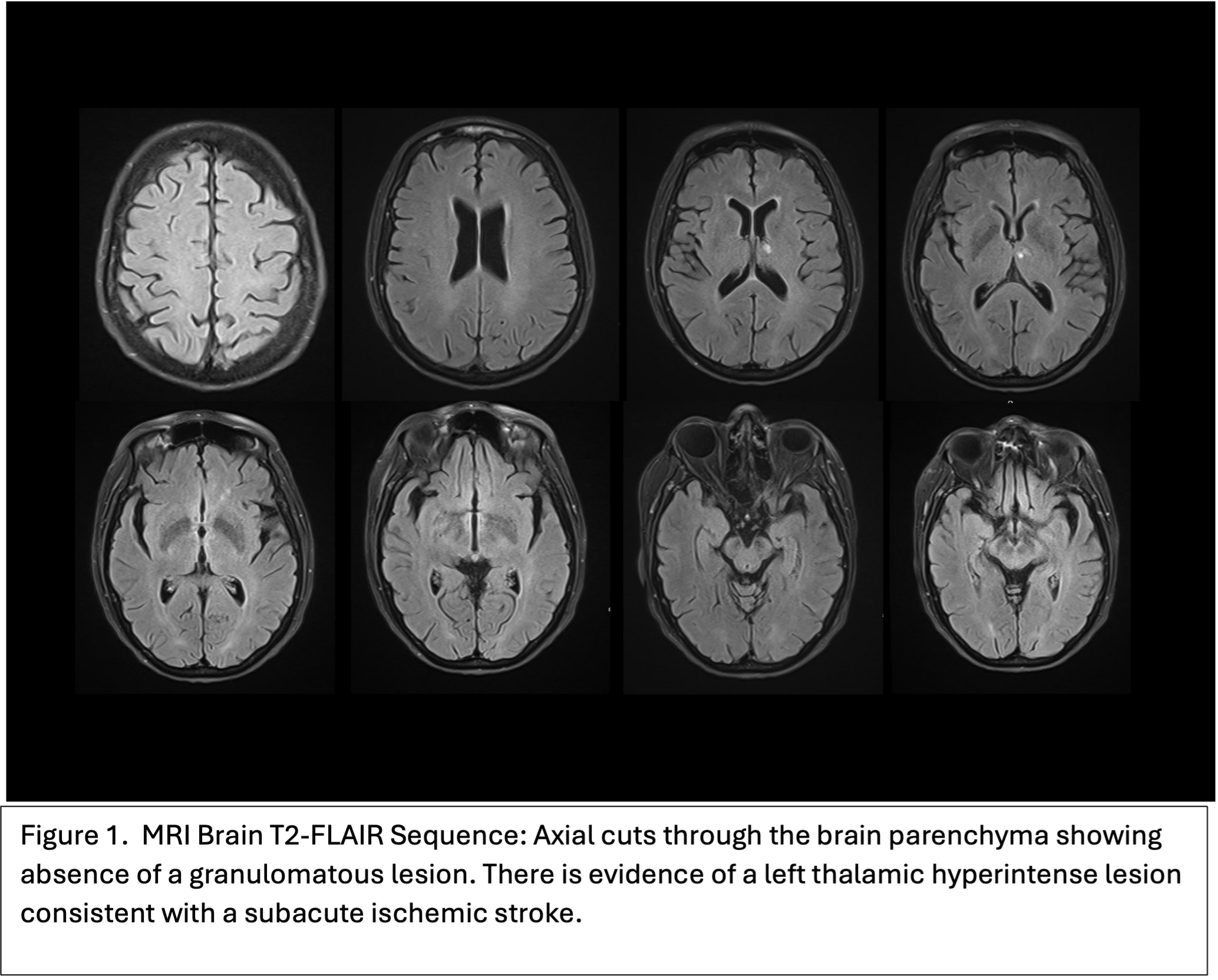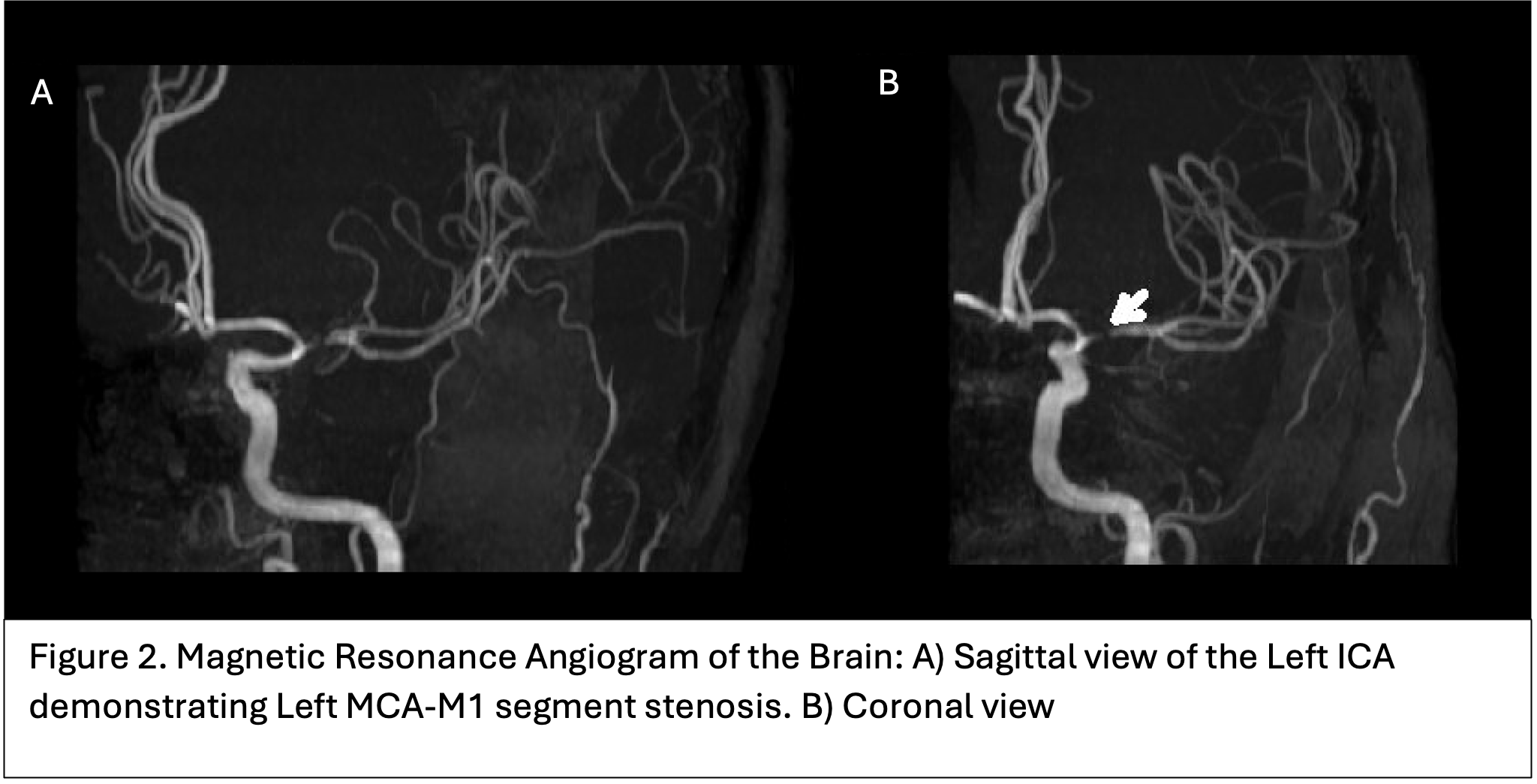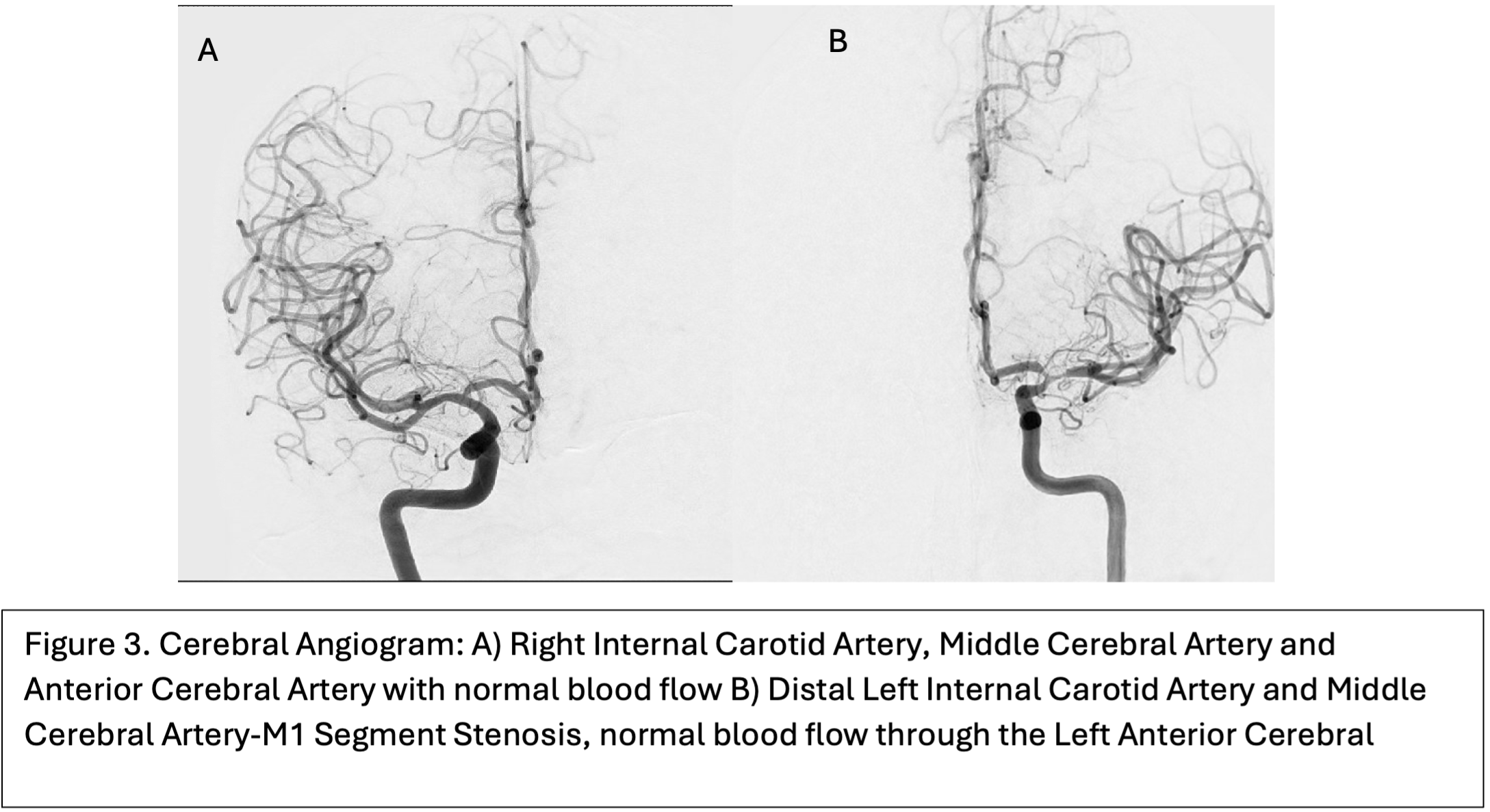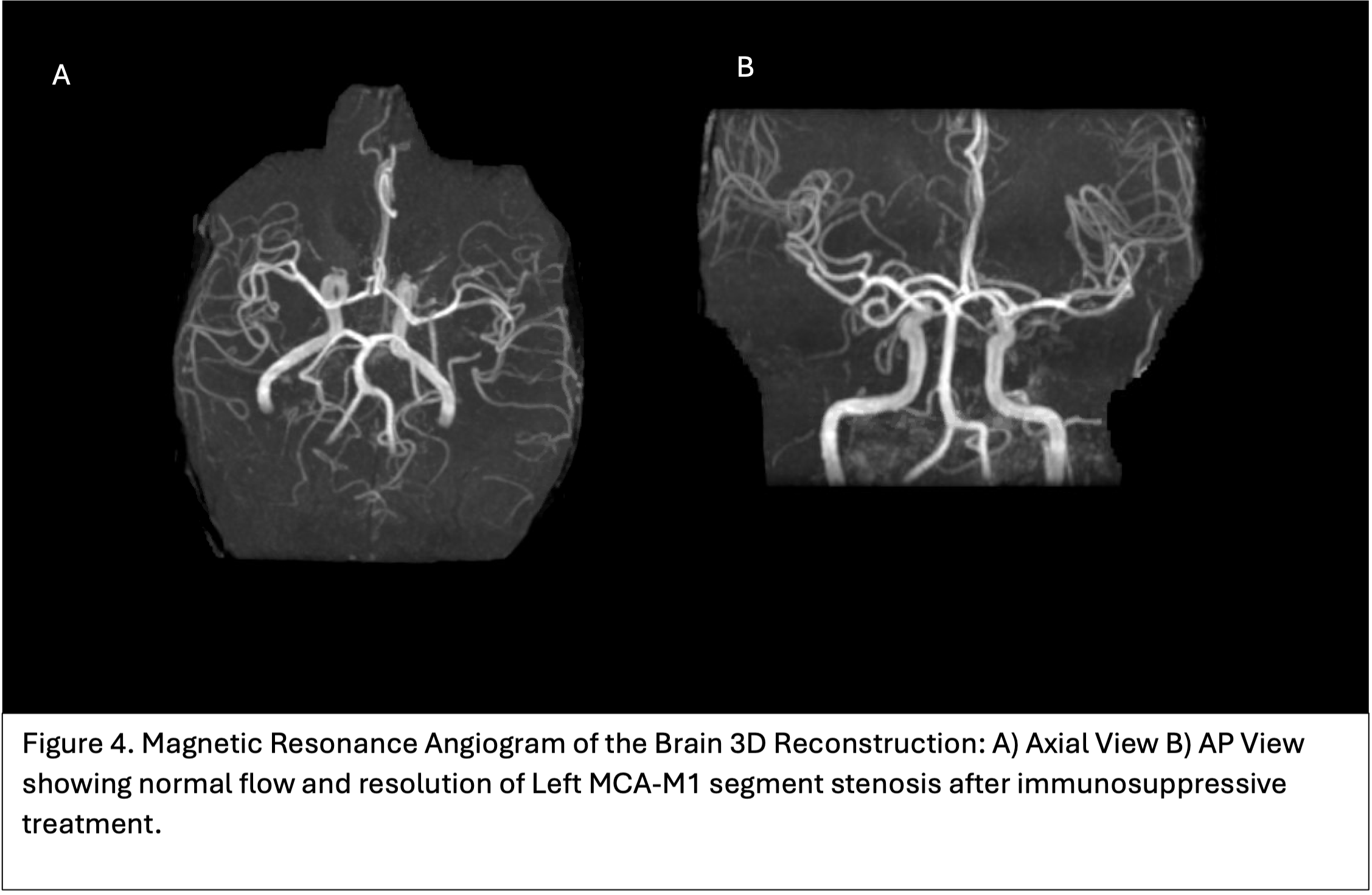Category: Choreas (Non-Huntington's Disease)
Objective: To share our experience managing a patient who presented with choreiform movements found to be secondary to sarcoidosis without CNS Granulomatosis.
Background: Sarcoidosis is a multisystemic inflammatory disease of unknown etiology. Neurological involvement due to sarcoidosis is termed neurosarcoidosis and represents 10 to 15% of cases. 17% of patients with neurosarcoidosis have no systemic involvement.
Method: A 72 yo female presented with subacute orofacial, lingual, and bilateral upper and lower extremity choreiform movements. Her medical history was significant for breast cancer, viral encephalitis more than 10 years before presentation and scarlet fever during her childhood. Neurological examination was negative for cranial neuropathies, meningitis, or peripheral neuropathy. CSF Analysis showed lymphocytic pleocytosis, cytology was negative for malignancy, CSF ACE was negative, serum auto-immune encephalitis panel was negative. MRI imaging of the brain showed diffuse white matter hyperintensities resembling microvascular ischemic changes but no structural brain abnormalities or acute pathology.
Results: A PET/CT scan showed abnormal uptake at two different lymph nodes. A lymph node biopsy resulted positive for sarcoidosis. Shortly after being diagnosed, she presented with several transient ischemic attacks and a minor stroke in the left thalamus. A cerebral angiogram revealed a proximal left middle cerebral artery stenosis suspected to be secondary to sarcoid angiitis. She was treated with mycophenolate mofetil and high dose steroids which resolved her symptoms. Because the patient did not have a lesion in the CNS available for biopsy, she never had a histopathologic confirmation of neurosarcoidosis.
Conclusion: -Chorea is an infrequent presentation of neurosarcoidosis.
-Per the new 2018 criteria diagnosis of definite neurosarcoidosis requires biopsy of affected central or peripheral neural tissue. Demonstration of sarcoid pathology in non-neural tissue allows for the diagnosis of probable neurosarcoidosis, which was the final diagnosis in our patient.
-Cerebral vasculitis, secondary to sarcoidosis also known as sarcoid angiitis is a rare but potential complication of neurosarcoidosis.
-Neurological manifestations of sarcoidosis can occur in the absence of structural lesions.
-In our patient, chorea appeared despite absence of a granulomatous lesion in the brain and resolved after immunosuppressive treatment.
Figure 1
Figure 2
Figure 3
Figure 4
References: 1. Stern BJ, Royal W III, Gelfand JM, et al. Definition and consensus diagnostic criteria for neurosarcoidosis: from the Neurosarcoidosis Consortium Consensus Group. JAMA Neurol. 2018;75(12):1546-1553.
2. Bradshaw MJ, Pawate S, Koth LL, Cho TA, Gelfand JM. Neurosarcoidosis: Pathophysiology, Diagnosis, and Treatment. Neurol Neuroimmunol Neuroinflamm. 2021 Oct 4;8(6):e1084. doi: 10.1212/NXI.0000000000001084. PMID: 34607912; PMCID: PMC8495503.
3. Pawate S. Sarcoidosis and the Nervous System. Continuum (Minneap Minn). 2020 Jun;26(3):695-715. doi: 10.1212/CON.0000000000000855. PMID: 32487903.
4. Ataya A, Harman E. Images in clinical medicine. Hemichoreoathetosis in neurosarcoidosis. N Engl J Med. 2015 May 21;372(21):e27. doi: 10.1056/NEJMicm1407763. PMID: 25992763.
5. Macêdo PJ, da Silveira VC, Ramos LT, Nóbrega FR, Vasconcellos LF. Isolated Central Nervous System Vasculitis as a Manifestation of Neurosarcoidosis. J Stroke Cerebrovasc Dis. 2016 Jun;25(6):e89-92. doi: 10.1016/j.jstrokecerebrovasdis.2016.02.036. Epub 2016 Apr 12. PMID: 27083067.
To cite this abstract in AMA style:
O. Carranza-Renteria, T. Hammond. Choreiform Movements Secondary to Sarcoidosis Without Central Nervous System Granulomatosis [abstract]. Mov Disord. 2024; 39 (suppl 1). https://www.mdsabstracts.org/abstract/choreiform-movements-secondary-to-sarcoidosis-without-central-nervous-system-granulomatosis/. Accessed July 3, 2025.« Back to 2024 International Congress
MDS Abstracts - https://www.mdsabstracts.org/abstract/choreiform-movements-secondary-to-sarcoidosis-without-central-nervous-system-granulomatosis/




